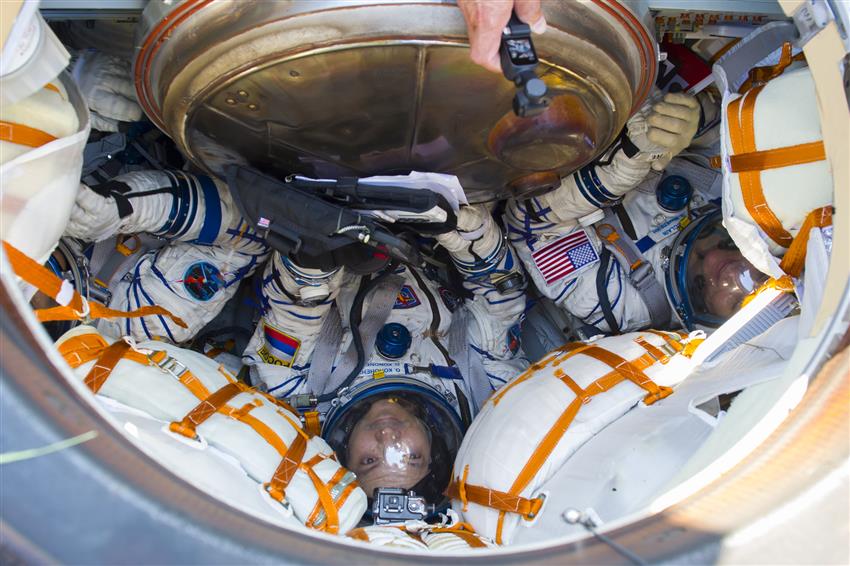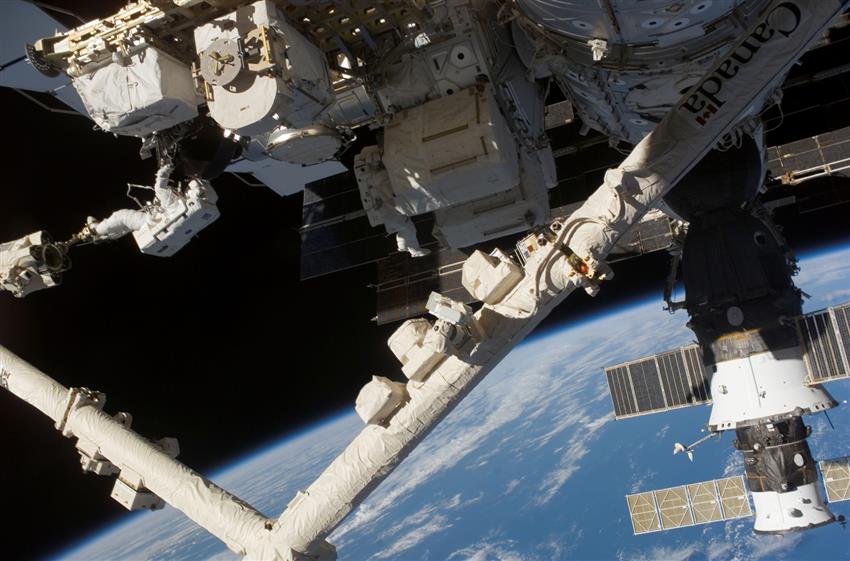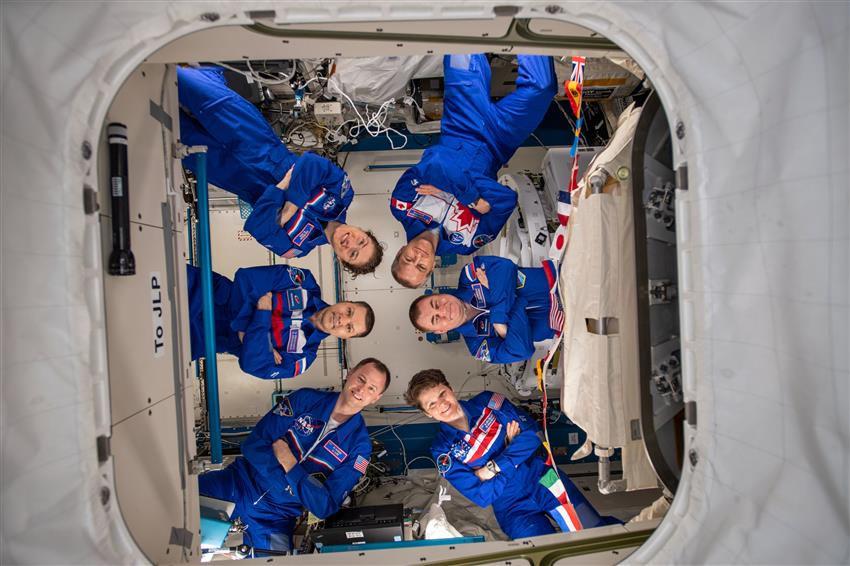Why mental health is important for astronauts in space
Have you ever had a day where you felt nothing was going right, you were emotionally drained or didn't feel like doing anything? Now imagine being an astronaut in space going through one of those days.
Thriving in the hostile environment of space
Space is a fascinating but hostile environment. It presents a host of unique challenges for humans that affect the body and the mind alike. Any one thing going wrong on a space vessel has the potential to be catastrophic.
Astronauts need to have focus to anticipate, prevent or manage any situation that may arise. How they handle an emergency in space can make the difference between life and death for them and their crewmates. Astronauts are also required to carry out complex tasks, such as operating Canadarm2, putting on spacesuits, and using science equipment or specialized tools. Being distracted or letting emotions take over while doing one of those things could have dire consequences.
"I remember on my second spacewalk being on the end of the Canadarm pointing straight out into space, hovering 400 kilometres over the Earth by myself. I couldn't see the Space Station behind me and it took me a minute or so to relax, to take a couple of deep breaths and enjoy the view."
Impact on crew
Astronauts have a high-pressure job in which they must constantly perform and be productive. During a mission, there is much to do in a short period of time. Should a crewmember become incapacitated, either physically or mentally, it would put a strain on the whole team, the schedule and the objectives of the mission.
Real life connections
People in a number of careers share similar challenges as astronauts:
- Submarine crews
- Deployed military members
- Offshore oil rig workers
- Scientists in remote research stations like Antarctica
- Polar explorers and mountaineers
They need to work and thrive in dangerous environments. They are isolated from family and friends, live in close quarters for long periods, and cannot receive supplies or come back easily in case of emergency or sickness. Did you know that psychosocial experiments like At Home in Space can also benefit people working in these fields?
During the COVID-19 pandemic, many of us experienced isolation and had limited contact with the outside world. That's a lot like how astronauts live in space. Former CSA astronaut Chris Hadfield shared how his experience on the ISS relates to COVID self-isolation.
How did you cope with COVID lockdowns? Were you able to stay productive or did you have a hard time functioning? Do you think any of the strategies shared by Chris would have helped you? What were your coping strategies? Did you connect virtually with friends? Take up a new hobby? Learn a new skill or language?
Do you live in a remote area? Close to one in five Canadians live in a remote or isolated community. This includes many First Nations, Inuit and Métis. According to Statistics Canada data from , 73% of Inuit live in Inuit Nunangat, where the vast majority of communities are accessible only by air. This geographic isolation leads to a number of challenges similar to those experienced by astronauts, such as difficulty accessing healthcare and getting food and supplies. If you live in a remote community, what are some of the challenges you face that are common to astronauts?
Preparing for the Moon and beyond
As we prepare to send humans back to the Moon, and eventually to Mars, learning how space affects astronauts' mental health is becoming more and more important. Living farther from Earth, family and nature is sure to have an even bigger impact on space travellers.
![[Video] Dave Williams et Robert Thirsk explain travelling farther into space](/images/jeunes-educateurs/trousses/sante-mentale-et-isolement/pourquoi-sante-mentale-importante-video-eng.jpg)
YouTube video - Dave Williams et Robert Thirsk explain travelling farther into space. Former CSA astronauts Dave Williams and Robert Thirsk explain how travelling farther into space will impact physical and mental health, and the way we deliver healthcare in space. (Credits: Ingenium Canada, CSA)


